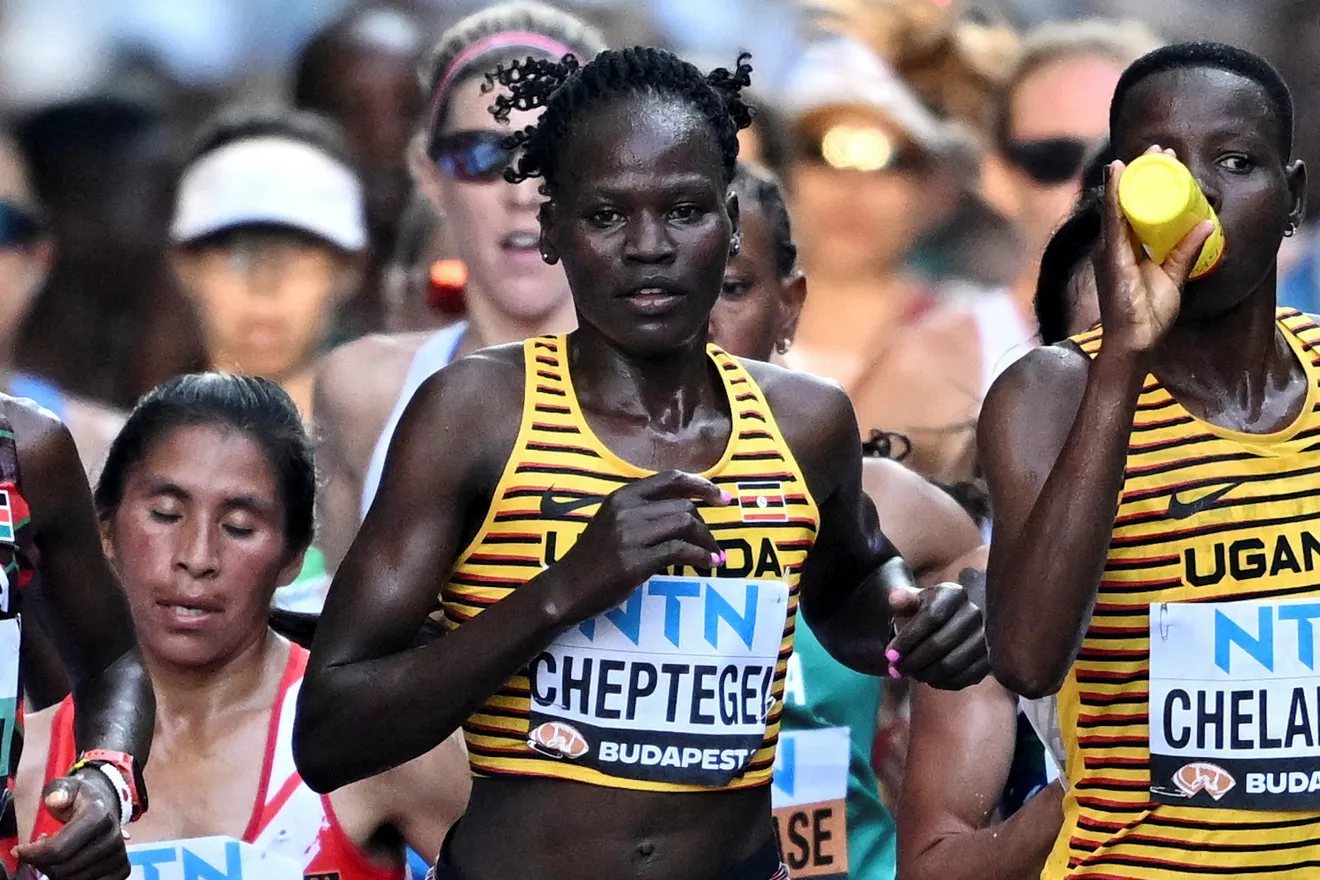Ugandan Olympic athlete Rebecca Cheptegei dies after being set on fire by ex-boyfriend
Rebecca Cheptegei, a Ugandan marathon runner who competed in the 2024 Paris Olympics, tragically lost her life after suffering severe burns from an attack allegedly orchestrated by her former boyfriend. At just 33 years old, Cheptegei had not only established herself as one of Uganda’s most promising athletes but had also made a significant impact in international athletics. Her death, which occurred four days after the brutal attack, has left the sports world in mourning and has reignited discussions about the prevalence of gender-based violence in Kenya and Uganda.
An Athlete’s Rise to Fame
Rebecca Cheptegei’s journey to Olympic stardom began in 2010, competing in middle-distance and long-distance events, including the 1,500 meters and the marathon. Born and raised in Cheminy, Uganda, she quickly made a name for herself in the athletics world. She represented Uganda at the 2011 and 2013 World Cross Country Championships, where she showcased her talent on a global stage.
In the years following, Cheptegei continued to compete in marathons worldwide. In 2022, she won the Padova marathon in Italy, a significant milestone in her career. That same year, she claimed gold at the World Mountain and Trail Running Championships in Chiang Mai, Thailand. In December 2022, she posted her personal best marathon time of 2:22:47 at the Abu Dhabi marathon, ranking her as the second-fastest female Ugandan marathoner of all time.
Cheptegei’s Olympic debut came at the 2024 Paris Summer Games, where she competed in the women’s marathon. Though she finished 44th, her participation marked a significant achievement for her and her country.
A Life Cut Short
On the night of the attack, police reported that Cheptegei’s former boyfriend, Dickson Ndiema Marangach, had broken into her home in Endebess, located in Kenya’s Trans-Nzoia County. Cheptegei had just returned home from church with her two children when Marangach allegedly doused her with gasoline and set her on fire. Neighbors rushed to the scene and were able to extinguish the flames before transporting Cheptegei and Marangach, who was also injured, to the Moi Teaching and Referral Hospital in Eldoret, Kenya.
Unfortunately, despite intensive medical care, Cheptegei succumbed to her injuries four days later, suffering from burns covering more than 75% of her body. Her death was confirmed by both the Ugandan Athletics Federation and the hospital’s director, Owen Menach. Cheptegei’s passing has been met with profound sadness from her family, friends, and the athletic community, many of whom expressed their grief on social media.
Domestic Dispute and Violence Against Women
The police investigation into Cheptegei’s death revealed that her relationship with Marangach had been strained due to a long-standing land dispute. They had reportedly been separated for some time and were due to appear before the Directorate of Criminal Investigations in Kenya over the issue. Cheptegei’s father, Joseph Cheptegei, confirmed that his daughter had been involved in disputes over her land in western Kenya, which she had purchased to facilitate her training.
The attack has drawn widespread condemnation, with Uganda Olympic Committee President Donald Rukare publicly decrying the violence and calling for justice. In a statement on X (formerly Twitter), Rukare said, “We have learned of the sad passing on of our Olympic athlete Rebecca Cheptegei… May her gentle soul rest in peace and we strongly condemn violence against women.”
This incident is not an isolated one in the region. Cheptegei’s death marks the third killing of an elite female athlete in Kenya within the last three years. In October 2021, Olympian Agnes Tirop was found dead with stab wounds in her home, and in April 2022, Kenyan-born Bahraini runner Damaris Muthee was found strangled. Both cases were linked to domestic violence, prompting calls for more robust measures to combat gender-based violence in the sports community and beyond.
A Broader Crisis in East Africa
The issue of gender-based violence is rampant in many parts of East Africa, with Kenya particularly grappling with alarming rates of physical violence against women. According to government statistics, nearly 34% of Kenyan women aged 15 to 49 have experienced physical violence, while 41% of married women have faced violence within their marriages. These statistics reflect a deeper cultural and systemic problem that has persisted for decades, despite efforts by activists and government officials to address the issue.
Cheptegei’s murder is a painful reminder of the dangers women face, even those with global recognition and success. Her death also highlights the unique vulnerabilities of female athletes, who are often subjected to financial exploitation and manipulation by men posing as romantic partners. In the wake of Cheptegei’s death, prominent voices in the athletic community have spoken out, including Joan Chelimo, a co-founder of Tirop’s Angels, a group that aims to support women athletes facing domestic abuse. Chelimo has noted that female athletes are particularly susceptible to predators who exploit their success and wealth, leading to dangerous and sometimes deadly relationships.
A Call for Action
Rebecca Cheptegei’s death has sparked outrage and sorrow, not only in Uganda and Kenya but across the international sporting community. Kenyan Sports Minister Kipchumba Murkomen described her passing as a loss for the entire region and emphasized the need for more to be done to tackle gender-based violence in society. “This tragedy is a stark reminder that we must do more to combat gender-based violence,” Murkomen said in a statement.
Cheptegei’s death underscores the importance of creating support systems for female athletes, particularly in countries where gender-based violence is prevalent. Initiatives like Tirop’s Angels are essential in raising awareness and providing resources for women who may be at risk. However, activists argue that more significant legal reforms and stricter enforcement of existing laws are necessary to protect women and hold perpetrators accountable.
Remembering Rebecca Cheptegei
As the world mourns the loss of Rebecca Cheptegei, it is essential to remember her not just for her athletic achievements but for her resilience and determination. Her journey from a small town in Uganda to competing on the world’s biggest athletic stage is a testament to her hard work and dedication. She was a trailblazer for Ugandan athletics, and her legacy will continue to inspire future generations of athletes.
Cheptegei’s death is a tragic reminder of the dangers that women face in their personal lives, regardless of their public successes. As her family and friends grieve, the athletic community is left grappling with the devastating loss of yet another talented athlete to domestic violence. The hope is that her death will serve as a catalyst for more concerted efforts to address and prevent gender-based violence in East Africa and beyond.


